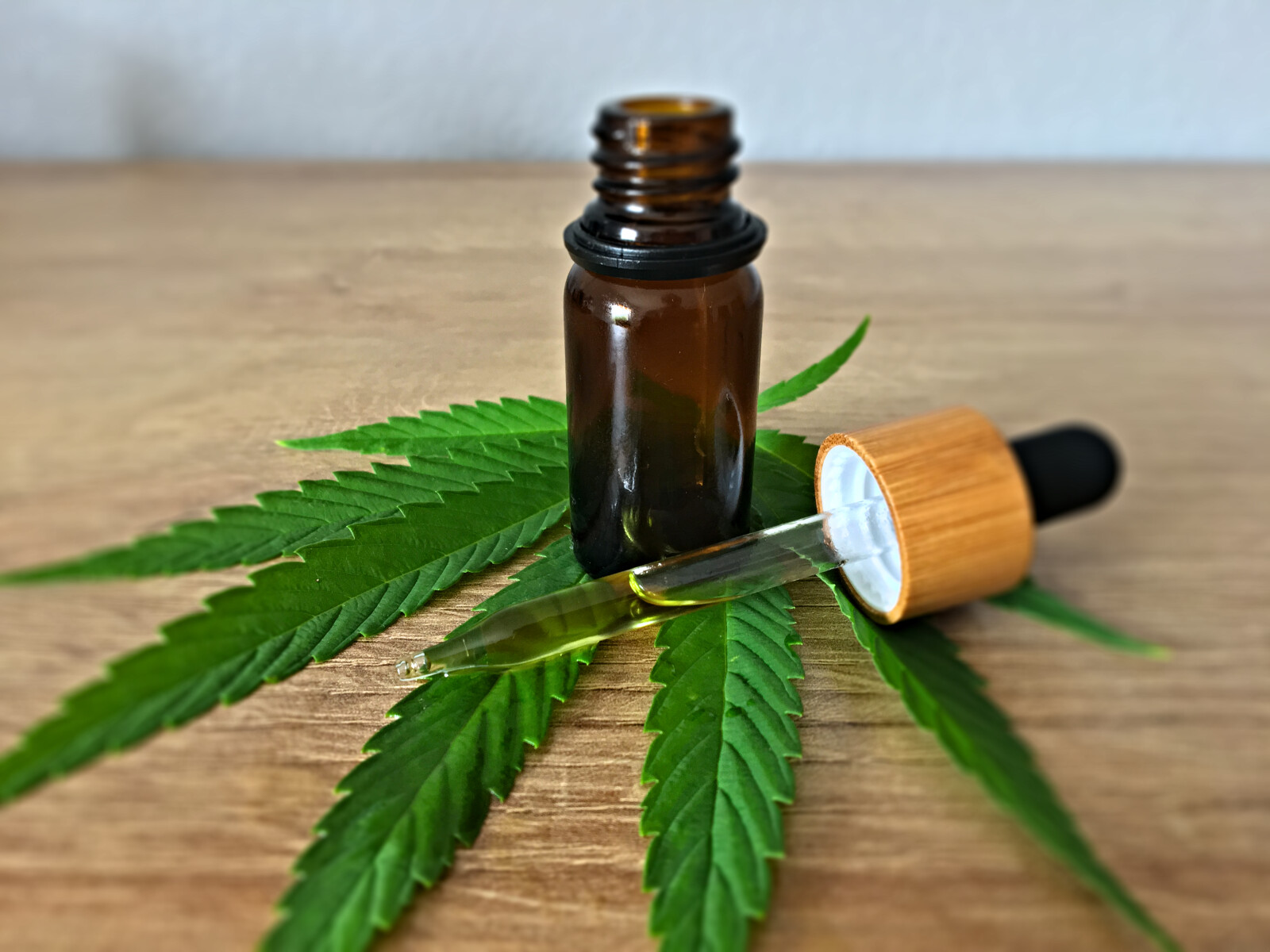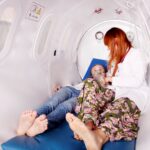CBD for Kids’ Anxiety
Understanding, exploring, and evaluating the potential of Cannabidiol (CBD) in treating pediatric anxiety disorders forms the crux of this study. Amidst limited research and ongoing debates, we delve into the therapeutic benefits and risks associated with CBD use in children, the legalities involved, and the crucial role of professional medical advice. Our comprehensive analysis aims to shed light on this complex issue, emphasizing the need for further investigation and clinical trials.

Key Takeaways
- Evidence suggests CBD may help treat anxiety disorders in children.
- Caution is advised due to potential adverse effects, drug interactions, and long-term use of CBD for kids with anxiety.
- The U.S. FDA expresses concern about the exposure of vulnerable populations, including children and pregnant women, to CBD.
- There is limited and inconclusive scientific research on the safety and effectiveness of CBD for kids with anxiety.
Understanding Child Anxiety: An Overview
Child anxiety, an abstract yet profoundly impactful concept, is a complex mental health disorder that manifests in children through persistent, excessive worry and fear about everyday situations. The impact of parental support on child anxiety cannot be overstated. A secure and understanding environment provided by parents can significantly alleviate anxiety symptoms. Conversely, lack of support may exacerbate anxiety levels. Addressing child anxiety requires a multifaceted approach. In addition to traditional therapeutic interventions, there's an increasing interest in alternative treatments for child anxiety. This includes cognitive-behavioral techniques, mindfulness practices, and newly emerging methods such as the use of CBD. However, these alternatives must be explored with caution due to the lack of long-term studies confirming their safety and efficacy.
The Role of CBD in the Medical World
Navigating the medical world, CBD has emerged as a potential therapeutic agent for various conditions, but its use, particularly in children, is not without controversy and concerns. The role of CBD in pediatric medicine is being closely examined, with research focusing on its efficacy and safety for pediatric anxiety. Preliminary studies suggest CBD may have therapeutic potential, but further rigorous investigations are needed. While CBD's non-psychoactive nature makes it a compelling option, its unregulated status raises safety issues. Concerns about potential side effects, drug interactions, and the long-term impact of its use in children persist. Therefore, while CBD may play a significant role in pediatric medicine, healthcare providers must exercise caution and consider rigorous scientific evidence before recommending its use for pediatric anxiety.
A Closer Look at CBD: What Is It
While CBD, also known as Cannabidiol, has gained significant attention in recent years for its potential therapeutic uses, it is essential to understand what it is and how it is derived. CBD is a non-psychoactive compound extracted from the cannabis plant, specifically hemp strains, containing less than 0.3% THC. CBD's legality varies; while it is legal under federal law, some state laws differ, adding to CBD misconceptions. Despite not causing a 'high', misconceptions persist that CBD is intoxicating, largely due to its origin from the cannabis plant. Scientific studies suggest CBD's potential in managing symptoms for various conditions, including anxiety. However, its use, particularly in children, necessitates more rigorous research to fully assess its safety and effectiveness.
CBD and Children: A Controversial Topic
Despite the growing popularity of CBD as a potential treatment for various health conditions, its use in children remains a contentious subject due to limited and inconclusive scientific research. The CBD controversy hinges on the balance between potential benefits and unknown risks, particularly in long-term use. Parental concerns often revolve around the safety, effectiveness, and potential side effects of CBD use in children, along with the lack of comprehensive dosing guidelines. As the debate continues, it is crucial that parents and healthcare professionals approach the topic with caution, ensuring that decisions are based on the best available evidence, while advocating for further research to fully understand the implications of CBD use in children.
Research on CBD’s Effect on Anxiety in Kids
The body of research on the effects of CBD on childhood anxiety is growing, yet it remains in its early stages, and thus, further investigations are necessary to fully understand its potential benefits and risks. The current literature presents several CBD research limitations, including small sample sizes, short-term studies, and a lack of placebo-controlled trials. Additionally, the potential risks of CBD use in children, such as adverse reactions and interactions with other medications, are not yet fully understood, demanding a cautious approach. Although some studies suggest CBD may alleviate anxiety symptoms, the safety and long-term effects of its use in children are unclear. Therefore, medical professionals and parents should weigh these potential risks against the proposed benefits until more comprehensive research is available.
The Science Behind CBD and Anxiety
Beneath the surface of the ongoing debate on the use of Cannabidiol (CBD) for children's anxiety, lies the science of its interaction with our neural system, and this understanding can provide insights into how this compound might alleviate anxiety symptoms. CBD works by influencing the endocannabinoid system, which regulates various physiological processes, including mood. The effectiveness of CBD in treating child anxiety stems from its potential to boost serotonin levels, a neurotransmitter that plays a key role in anxiety disorders. However, the potential risks of using CBD for children with anxiety cannot be overlooked. Questions remain about its safety, possible side effects, and interactions with other drugs, highlighting a need for further research and cautious use.
How CBD Works: The Endocannabinoid System
Understanding the endocannabinoid system involves a complex interplay of receptors, enzymes, and endocannabinoids, and it plays a critical role in how CBD potentially alleviates anxiety in children. This system regulates emotions, sleep, and stress responses, all critical factors in managing anxiety. The potential benefits of CBD are due to its interaction with this system. CBD is thought to limit the breakdown of anandamide, a natural endocannabinoid, resulting in increased levels in the brain. This could potentially reduce anxiety and improve mood. However, there are safety concerns to consider. While CBD has been generally well-tolerated in studies, its long-term effects, particularly in children, are not fully understood. Therefore, it's crucial to consult with healthcare professionals before considering CBD for children's anxiety.
Side Effects of CBD in Children: What to Watch Out For
While CBD's potential benefits for children's anxiety are promising, it is important to be aware of and monitor any potential side effects. Some children may experience changes in their sleep patterns due to the calming effects of CBD. This shift in CBD and sleep could lead to drowsiness or increased alertness at unusual hours. Additionally, there are potential risks of CBD, including dry mouth, reduced appetite, diarrhea, and fatigue. It's essential to monitor your child's reaction to CBD closely and consult with a healthcare professional to manage these side effects. Long-term effects of CBD use in children are not yet fully understood, thus, caution must be applied when considering CBD as a treatment for a child's anxiety.
Dosage Recommendations for CBD in Anxiety Treatment
Importantly, determining the appropriate dosage of CBD for children suffering from anxiety requires careful consideration and consultation with a healthcare professional. Currently, there is a lack of established CBD dosage guidelines, particularly for children. As such, it is crucial to weigh the potential risks and benefits. CBD's potential benefits can include reducing symptoms of anxiety, but potential risks involve adverse reactions and drug interactions. The effects of CBD can also vary depending on the individual child's weight, metabolism, and the severity of their anxiety. Ongoing monitoring is essential to adjust the dosage as needed and to promptly address any side effects. Lastly, parents should only administer CBD under the guidance of a healthcare professional experienced in CBD use in children.
CBD as a Supplement to Anxiety Therapy for Children
In the realm of pediatric mental health, CBD is emerging as a potential supplement to traditional anxiety therapies for children, yet it remains a topic of considerable debate and ongoing research. Some parents and healthcare providers are considering CBD as a substitute for therapy, given its calming effects and potential to mitigate anxiety symptoms. However, it's essential to note that CBD should not replace conventional treatments but may supplement them under medical guidance.
The potential risks of long-term CBD use in children are not fully understood due to the limited research available, raising concerns about its safety profile. These risks may include cognitive impairment, liver damage, and potential for dependency. Thus, caution and regular medical supervision are imperative when using CBD as a supplemental treatment for childhood anxiety.
Parents’ Views and Experiences With CBD for Kids’ Anxiety
The perspectives and personal experiences of parents who have utilized CBD as a treatment option for their children's anxiety present a critical component of understanding this complex issue. Parents' testimonials often highlight the benefits they have observed, including reduced anxiety symptoms and improved overall mood. Many express appreciation for this alternative treatment, especially when traditional methods have failed or caused unwanted side effects. However, these experiences also reflect a spectrum of outcomes, with some parents noting minor to no changes, or expressing concerns over potential long-term effects. While these testimonials provide valuable insights, they should be considered alongside scientific evidence and medical advice to ensure a comprehensive understanding of CBD's role in managing children's anxiety.
Legal Aspects of Using CBD for Children’s Anxiety
While some parents may find CBD a promising treatment for their children's anxiety, they must also navigate the legal complexities associated with its use. The legal regulations surrounding CBD vary and are continually evolving, creating a confusing landscape for parents seeking alternative treatments for their children. Some states have legalized CBD entirely, while others have strict limitations on its use. Additionally, the Federal Drug Administration (FDA) has not approved CBD for the treatment of anxiety, further complicating its legal status. Ethical concerns also arise when considering CBD use in children. These include issues of informed consent, long-term effects, and the potential for misuse or dependency. Therefore, parents must weigh the potential benefits of CBD against these legal and ethical considerations.
Deciding on CBD: Considerations for Parents
As parents evaluate their child's anxiety treatment options, it's crucial to consider both the potential benefits and drawbacks of CBD use. Legal considerations play a significant role in this decision, as CBD's legality varies by location and its use in pediatric patients remains a gray area. Beyond legal issues, parental concerns may revolve around the lack of conclusive research on CBD's long-term effects in children. It's essential to consult with healthcare professionals who can provide insight into potential side effects and drug interactions. While some parents may view CBD as a natural alternative to traditional anxiety medications, it's important to weigh these considerations carefully. Educated decisions will ensure the child's safety and wellbeing are prioritized.
Managing Expectations: The Reality of Using CBD for Anxiety
Understanding the truth behind CBD treatment for anxiety involves managing parental expectations and acknowledging the current research gaps in pediatric CBD use. Parents must be aware that while some studies suggest a link between CBD and improved sleep, this area remains under-researched, especially in children. The potential risks and benefits of CBD for pediatric anxiety are still being explored. Early findings indicate potential benefits in managing anxiety symptoms, but these must be weighed against possible side effects and unknown long-term impacts. CBD's interaction with other medications is another critical consideration. Until more comprehensive research is available, it's essential to approach CBD use for pediatric anxiety cautiously, always under the guidance of a healthcare professional.
The Future of CBD in Pediatric Anxiety Treatment
Looking ahead, we can anticipate that CBD's role in pediatric anxiety treatment may evolve significantly, yet it's crucial to remember the need for comprehensive research and clinical trials. The ethical implications of using CBD in children necessitate stringent guidelines to ensure safe and effective use. Questions about long-term effects remain, given the scarcity of studies on pediatric populations. As CBD continues to gain popularity, its therapeutic potential must be balanced against potential risks. The future of CBD in pediatric anxiety treatment hinges on the development of robust clinical evidence, ethical considerations, and a careful evaluation of long-term effects. Until then, healthcare professionals and parents must navigate this emerging field with caution and evidence-based knowledge.
Frequently Asked Questions
What Are the Potential Risks of CBD Dependency in Children With Anxiety?
The potential risks of CBD dependency in children with anxiety are currently under-researched. However, concerns exist regarding potential side effects and drug interactions. There's also uncertainty about appropriate CBD dosage for children. Long term use could potentially lead to dependency or impact developmental health. Therefore, it's crucial to consult with a healthcare professional before starting any CBD treatment in children. More comprehensive studies are needed to fully understand the risks and benefits.
Are There Any Differences in the Effectiveness of CBD for Anxiety Between Male and Female Children?
Current research does not conclusively indicate any gender-specific differences in the effectiveness of CBD for anxiety. However, individual responses to CBD can vary due to factors like body weight and metabolism, which could potentially result in dosage variations between male and female children. More comprehensive, gender-focused studies are needed to fully understand any potential differences in CBD's effects across genders. As always, a healthcare professional should guide any modifications in dosage.
Can a Child Develop Tolerance to CBD Over Time, Reducing Its Efficacy for Anxiety?
Current studies on CBD's impact on children are inconclusive, including whether a child can develop tolerance over time, reducing its effectiveness for anxiety. It's critical to follow dosage guidelines to mitigate potential side effects. Long-term use may alter its efficacy due to potential development of tolerance. However, comprehensive studies are required to substantiate these claims. Always consult with a healthcare provider to discuss potential risks and benefits.
Are There Alternative Natural Remedies to CBD for Managing Child Anxiety?
Exploring alternative natural remedies for managing child anxiety is crucial. Herbal supplements' efficacy varies and requires further research, but some such as chamomile or passionflower might offer benefits. Additionally, practices like yoga therapy are gaining recognition for their potential in promoting relaxation and managing anxiety. However, it's important to consult a healthcare provider before implementing these alternatives, to ensure they are safe and suitable for the child's individual needs.
What Are Some Coping Strategies Parents Can Employ to Help Their Children Deal With Anxiety Alongside CBD Treatment?
To aid children in managing anxiety alongside CBD treatment, parents can employ several coping strategies. Recognizing and understanding 'Anxiety Triggers' is essential. Parents can use 'Emotional Coaching' to help their children express and manage their feelings. Regular exercise, adequate sleep, and a balanced diet also contribute to anxiety management. It's crucial that these strategies are used in conjunction with professional medical advice and not as a replacement for it.
Conclusion
The exploration of CBD as a potential treatment for pediatric anxiety is akin to venturing into uncharted waters. While preliminary findings hint at the therapeutic benefits of CBD, the journey is still fraught with legal complexities and safety concerns. The need for extensive scientific research and clinical trials is paramount. As the ship ventures forth, professional medical guidance serves as the compass, steering towards the safe and effective use of CBD in children with anxiety.

This post has been generated by AI and was not reviewed by editors. This is Not legal advice. Please consult with an attorney.




